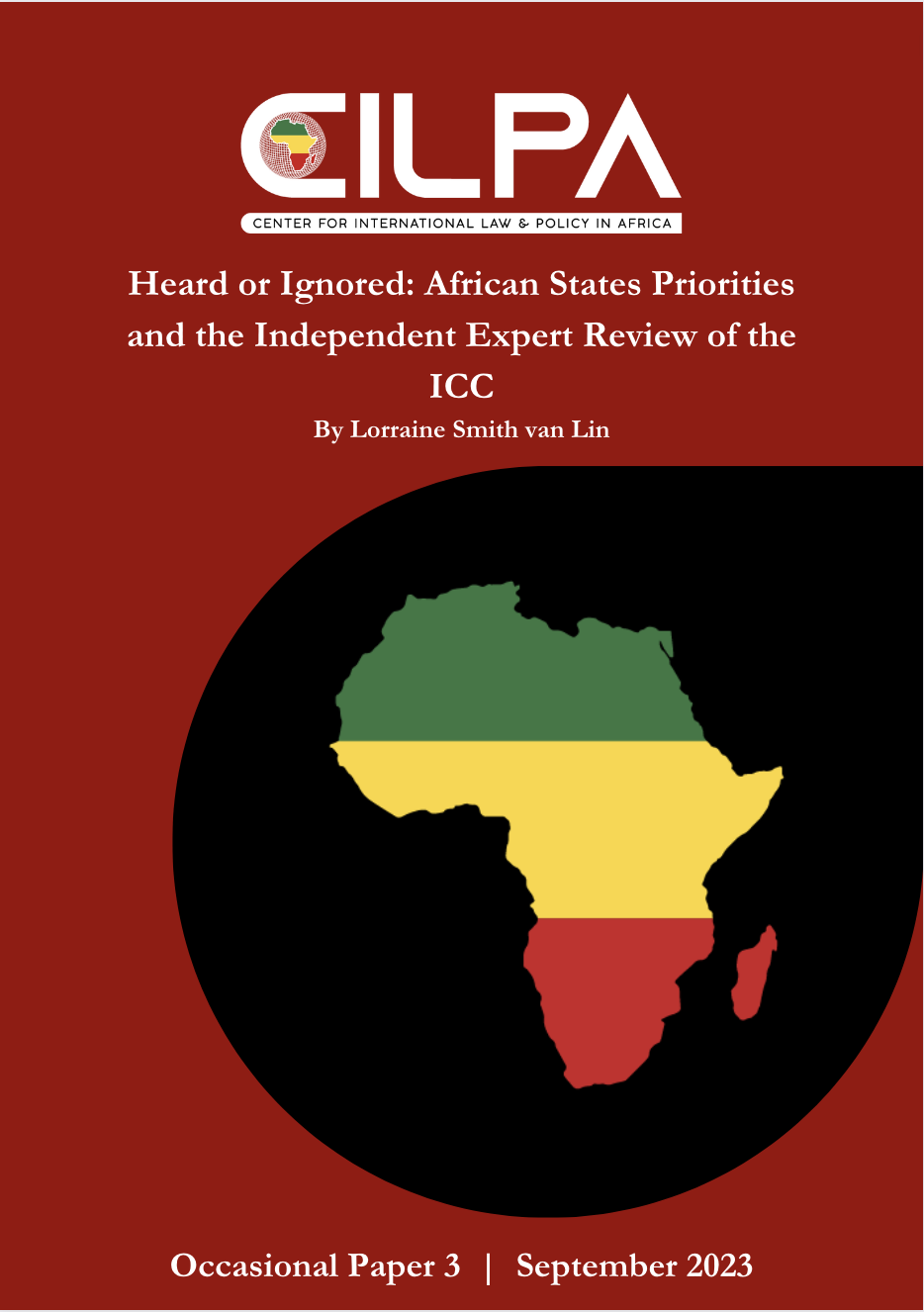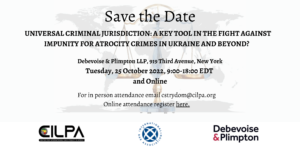OCCASIONAL PAPERS
CILPA is dedicated to providing access to resources that highlight and promote African perspectives, contributions and scholarship in international law, policy, and justice; and therefore publishes papers commissioned as part of its various projects as open-source Occasional Papers.
Bringing the African Perspective to the ICC Reform Process
As a component of The International Criminal Court in Africa Project: Ensuring African State Concerns are Not Left Out of the ICC Reform Process Project, supported by Open Society Foundation – Africa (OSF-Africa), CILPA is pleased to publish our first three occasional papers as open-source material.
Project Description
The International Criminal Court (ICC) has faced mounting criticism over the past few years as it struggles to fulfil its ambitious mandate in the Rome Statute. In response and based on a proposal of the ICC principals in a May 2019 letter, the Bureau of the ICC Assembly of State Parties (ASP) adopted a resolution on 6 December 2019 in which the States Parties recognized the multifaceted challenges currently facing the ICC and established an Independent Expert Review (IER) process. The IER was billed as an “inclusive State-Party driven process for identifying and implementing measures to strengthen the Court and improve its performance.” But for the review process to succeed, it will need to take into account the views of all States from all regions of the world as well legal academia and victims in ICC situation countries. The concerns of key stakeholders, such as the 33 State Parties from the African region which have been among the strongest supporters and also strongest critics of the ICC, are crucial. In fact, African States submitted numerous proposals for reform of the ICC system years before the reform process was put in place.
Yet, once the ASP created a formal review process, the extent to which the previous African State proposals were addressed by the IER remains unclear. African States sought to meaningfully participate in the IER process. In this regard, the African Group at the United Nations in New York appointed the Sierra Leonean and Senegalese legal advisers to their respective permanent missions to prepare an African position paper. That submission, of 31 July 2020, addressed a number of reform issues deemed to be part of particular concern to African States including the question of sequencing peace with justice and the topic of immunity. It also annexed in a single place all the African State proposals from 2002-2022 on the Rome Statute and ICC Rules and Procedures, as well as AU decisions addressing issues relating to the ICC including specific reform proposals, compiled under the guidance of Professor Charles C. Jalloh of Florida International University. Despite the detailed African Group submission, when the IER report was issued, it contained no acknowledgement of the African Group’s submission and only incidentally addressed Africa-specific concerns.. The failure to take into account the African State views on how to improve the ICC system constitute a significant missing piece in the ongoing reform discussions. All the more so given the centrality of African States to the work of the ICC over the past two decades.
CILPA, with the funding of the Open Society Foundations’ Africa Regional Office, seized this opportunity to launch the The International Criminal Court in Africa Project. The aim was to shine a spotlight on the Africa specific concerns in order to help ensure that they are not left out of the ongoing ICC reform discussions. CILPA, in studying the issue, commissioned three independent consultants to conduct research into the experience of African States with the aim of identifying key concerns about the ICC reform process and proposing strategic recommendations to feed into the ongoing ICC reform discourse. The research and analysis carried out by the expert consultants formed the basis of a comprehensive analysis of the success and limitations encountered by the ICC in its ongoing reform process during a two-day workshop held at the Raddison Blu Mammy Yoko Hotel in Freetown, Sierra Leone, in October 2022. The workshop brought together the consultants and invited legal experts from academia, government, practice, and civil society. Their input was to be taken into account by the authors in the revision and finalization of their draft papers.
The papers were later subjected to further external peer review by three leading African legal scholars with expertise on Africa and the ICC. While the views contained in the papers are attributed to the authors, and thehy alone, CILPA is grateful to Prof. Charles C. Jalloh, Professor Olympia Bekou and Professor Gerhard Kemp for undertaking the further peer reviews of the papers on such notice.
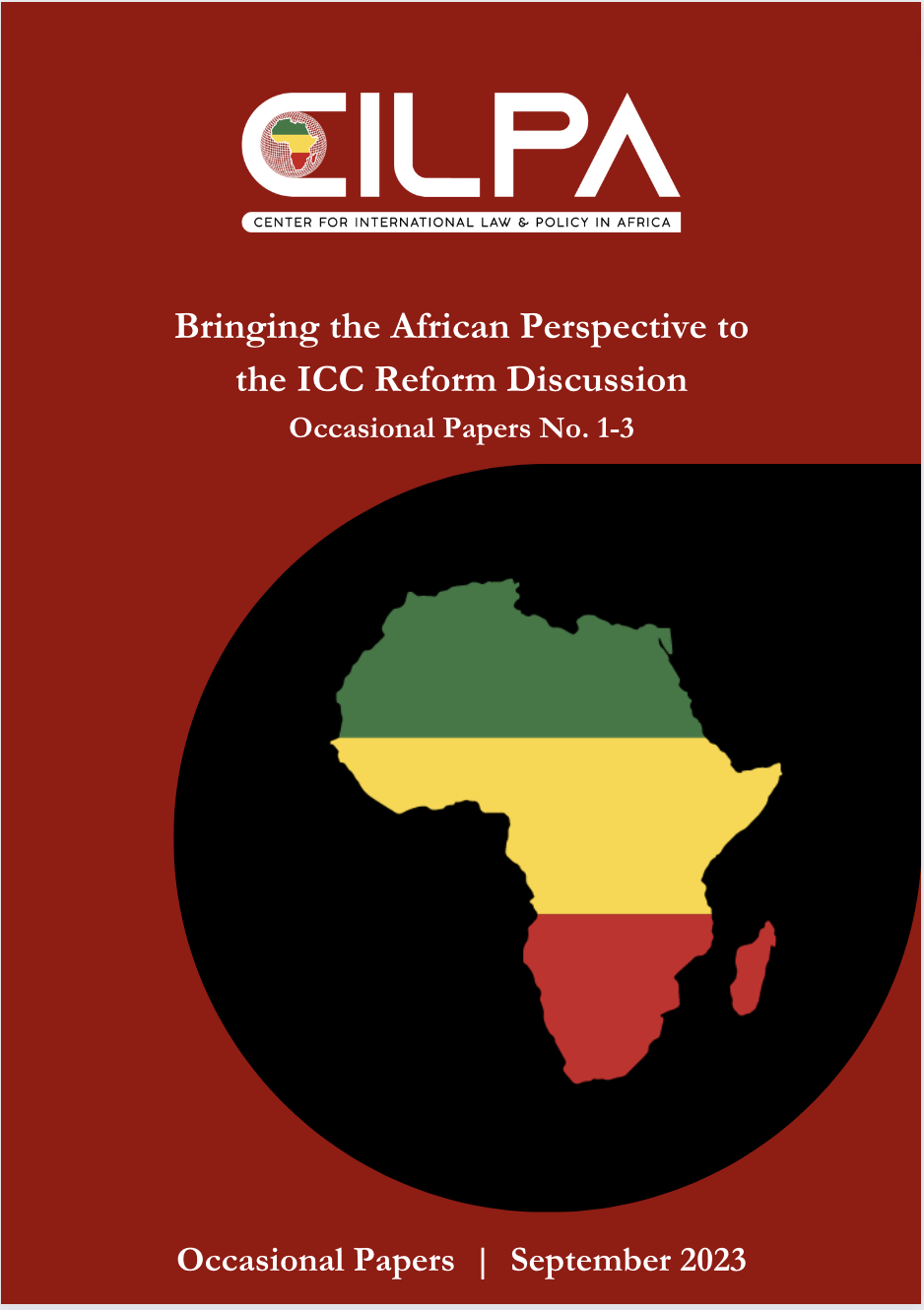
Background on the ICC and African States’ Relationship
The first paper by Mr. Sètondji Roland Adjovi provides a comprehensive background on the relationship between African States and the ICC from the Court’s inception, through to the ongoing Review Mechanism. The paper sets out in depth perspectives of various African States and their views of the ICC, as well as explores the way African States have interacted with the ICC, and vice versa. This paper sets the stage for the other two papers by providing context for the ongoing tensions between African States and the ICC.
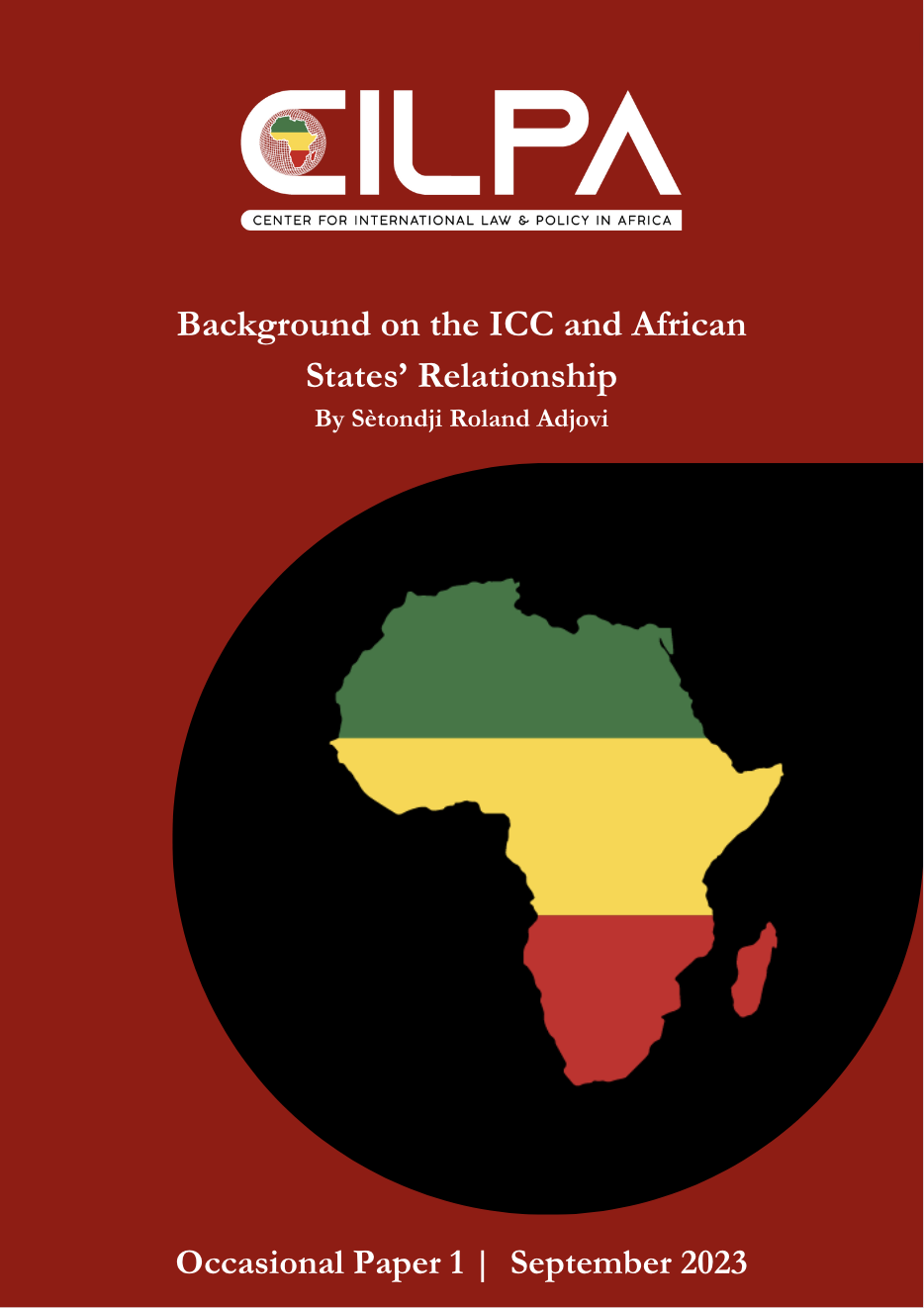
Examining the domestic legal framework in select African States that form part of the situational docket of the International Criminal Court
Dr. Geoffrey Kevins Lugano’s paper examines the domestic legal framework in the African States that today form part of the situational docket of the ICC. Particularly, it assesses national implementation of the Rome Statute, the missing gaps that cause lags in cooperation with the ICC, and other structural issues that undermine their duty to combat impunity for atrocity crimes. The assessment is informed by the recent calls for reforms at the ICC and looks inwards at the readiness of the African states to perform their primary duty in the global war on impunity for atrocity crimes.
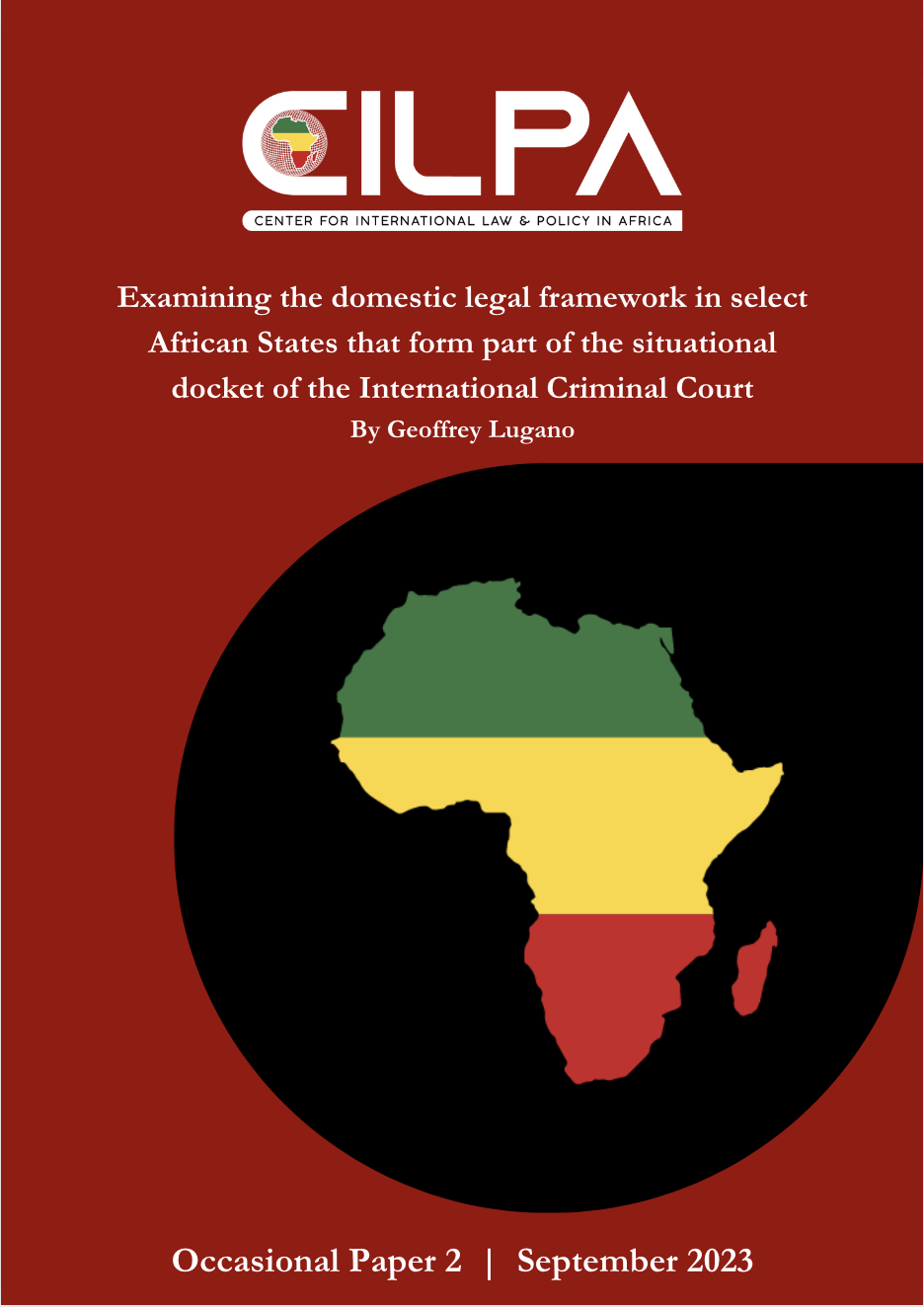
Heard Or Ignored: African States Priorities and the Independent Expert Review of the ICC
Ms. Lorraine Smith van Lin’s paper considers African States priorities and the Independent Expert Review of the ICC and critically assesses whether the concerns of African States were ignored or dismissed by the IER process at the ICC, specifically three of the main concerns of African states namely: complementarity; peace and justice; and cooperation. As the paper determines that there was indeed an ‘ignoring or dismissal’ of African concerns in the IER review process, it concludes with assessing the reasons.
